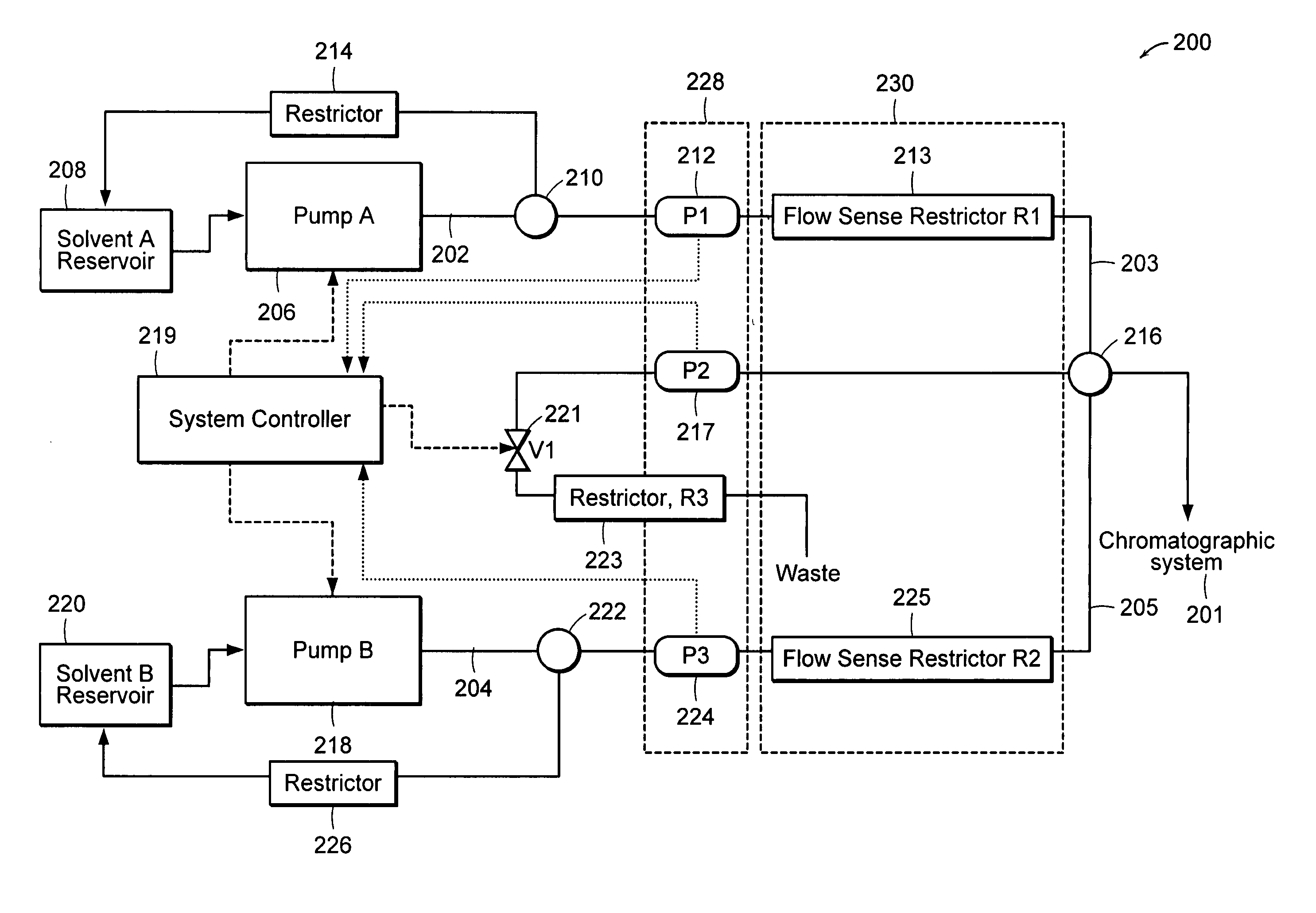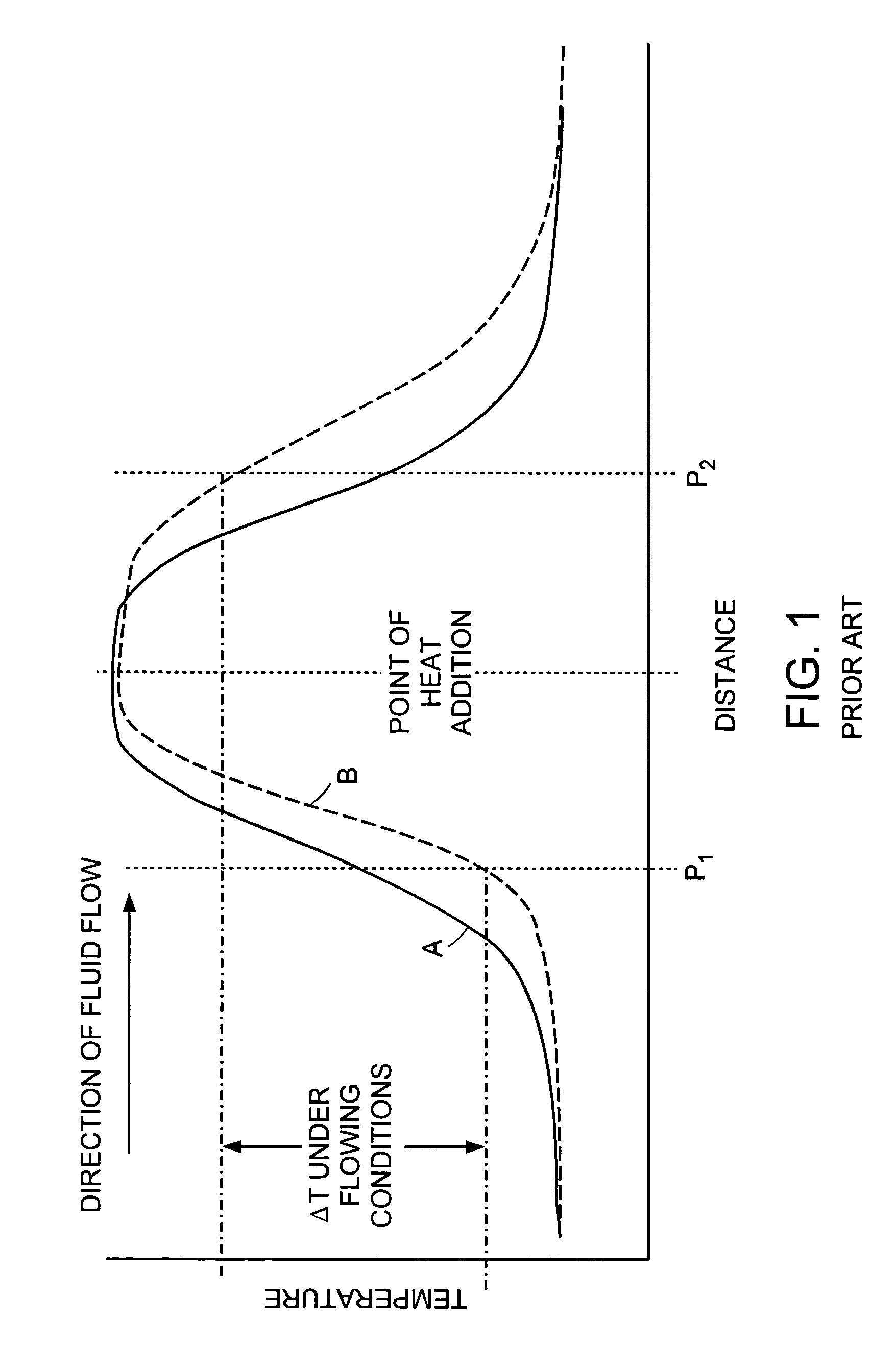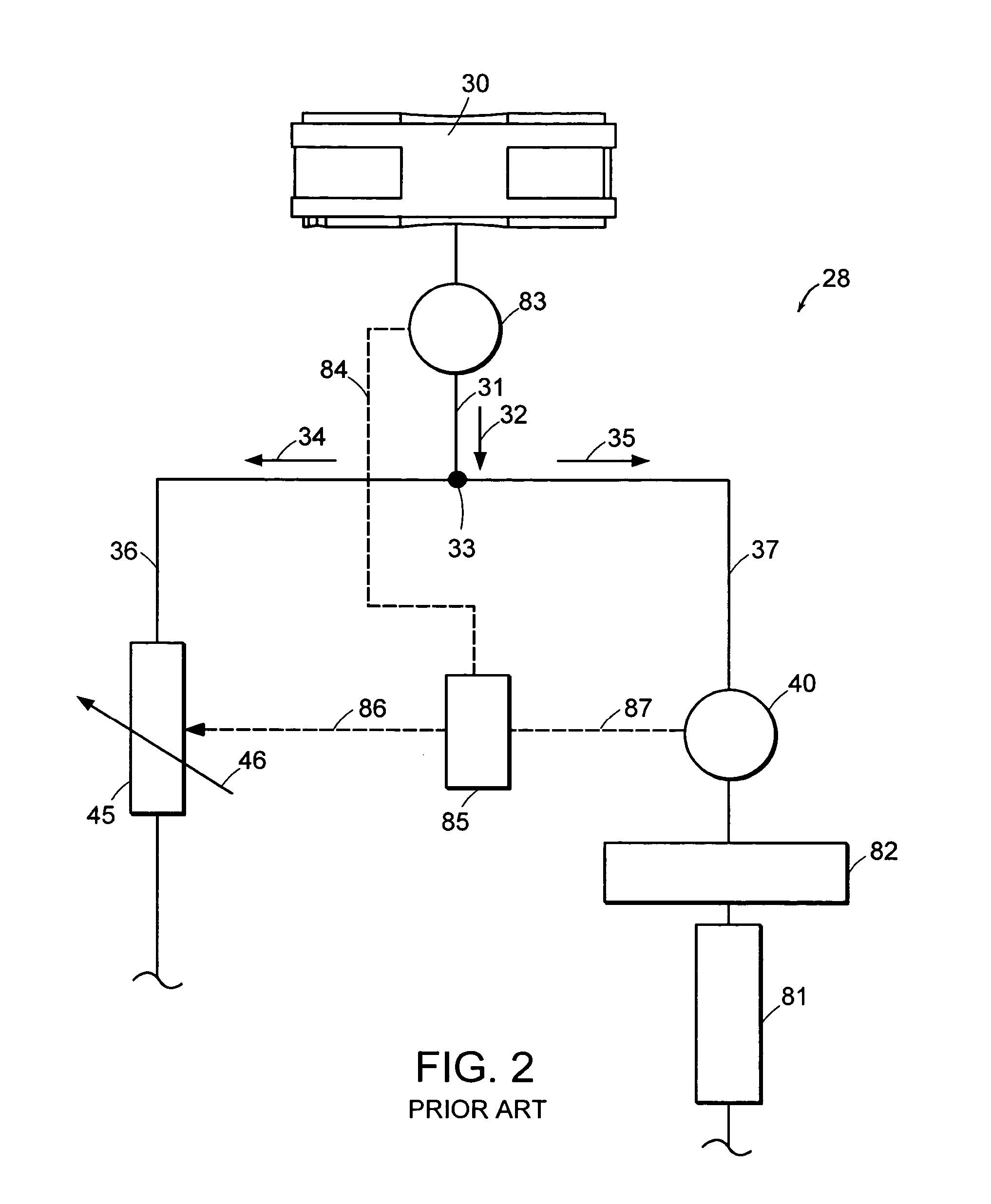Flow sensing apparatus
a flow sensing and flow control technology, applied in the direction of instruments, separation processes, filtration separation, etc., can solve the problems of inability to deliver nano-scale hplc flow rates with reliability and accuracy, unpredictable split ratio variation, and inability to control flow through the chromatographic column, etc., to achieve accurate measurement and control of capillary fluid flow, minimize delay, and be readily available
- Summary
- Abstract
- Description
- Claims
- Application Information
AI Technical Summary
Benefits of technology
Problems solved by technology
Method used
Image
Examples
Embodiment Construction
[0039]An illustrative embodiment of a capillary system 25 according to the invention is described generally with reference to FIG. 3. A main flow path 10 is divided by a flow-divider 12 into an operating flow path 14 and a waste flow path 16. A main flow sensor 18 is operatively disposed in the main flow path 10. A waste flow sensor 20 is operatively disposed in the waste flow path 16. Outputs from both the main flow sensor 18 and the waste flow sensor 20 are connected to the input of a subtractor 22 for communicating volumetric flow rate signals to the subtractor 22. Outputs from both the main flow sensor 18 and the subtractor 22 are connected to inputs of a divider 24 for communicating the main volumetric flow rate signal and a difference signal to the divider 24. The output of the divider 24 can be used, for example as described hereinafter to control flow rate in an operating stream.
[0040]In an illustrative embodiment depicted in FIG. 4, the capillary system 25 is a high pressur...
PUM
| Property | Measurement | Unit |
|---|---|---|
| flow rates | aaaaa | aaaaa |
| flow rates | aaaaa | aaaaa |
| pressure path flow rates | aaaaa | aaaaa |
Abstract
Description
Claims
Application Information
 Login to View More
Login to View More - R&D
- Intellectual Property
- Life Sciences
- Materials
- Tech Scout
- Unparalleled Data Quality
- Higher Quality Content
- 60% Fewer Hallucinations
Browse by: Latest US Patents, China's latest patents, Technical Efficacy Thesaurus, Application Domain, Technology Topic, Popular Technical Reports.
© 2025 PatSnap. All rights reserved.Legal|Privacy policy|Modern Slavery Act Transparency Statement|Sitemap|About US| Contact US: help@patsnap.com



